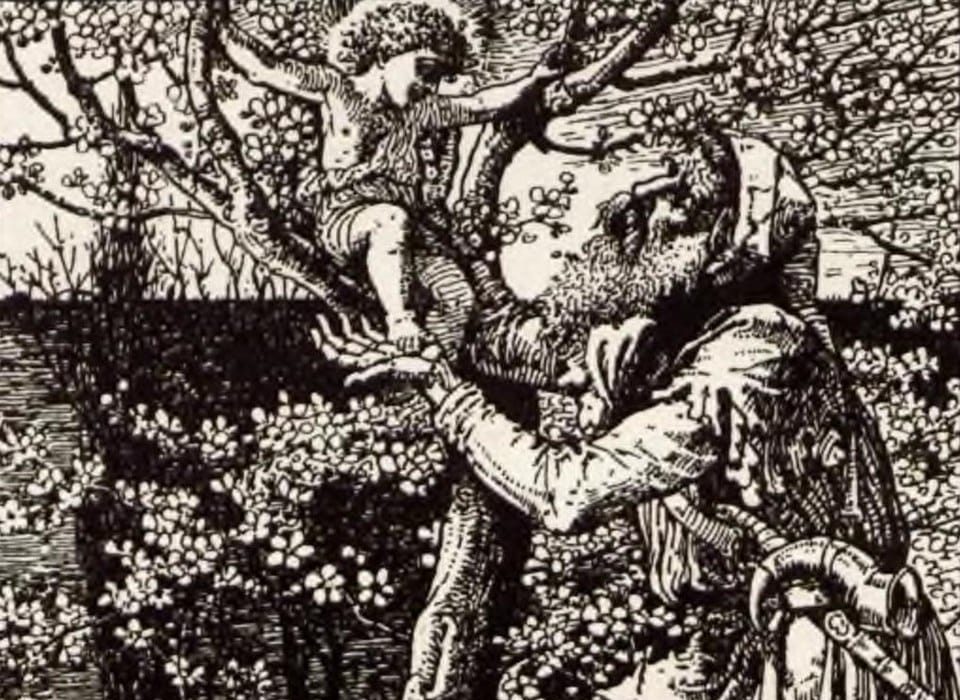Regularly, you will see collections of short stories marked The Greatest Short Stories of All Time, or Short Stories to Read Before You Die. Typically, these books have a number of great stories inside. Edgar Allan Poe will undoubtedly make an appearance. So will “Beyond the Door” by Philip K. Dick, and certainly “The Other Side of the Hedge” by E. M. Forster. In addition, you might find Kate Chopin’s extraordinary “The Yellow Wallpaper,” and the following short story: “The Garden Party” by Katherine Mansfield.
As you will see, Mansfield’s short story fits well with the classics, as it has a great deal of emotional depth and sheds a light on class conflict. In today’s post, we are going to examine the short story and analyze its themes and importance.
Background of “The Garden Party”
Mansfield wrote “The Garden Party” in 1922. The Saturday Westminster Gazette published it in three parts. It later appeared in the collection The Garden Party and Other Stories.
Mansfield came from an affluent household. She would attend Wellington Girls’ College and later to the Fitzherbert Terrace School. “The Garden Party” illustrates her experience as a well-to-do child from a wealthy home. Yet, it’s also much deeper than just superficial aristocracy. The story has a great reflection on wealth and opportunity.
“The Garden Party” Summary
Laura, the protagonist, sets about preparing for a fancy garden party. She occasionally looks to the workers in reverence because she feels connected to them.
“Four men in their shirt-sleeves stood grouped together on the garden path. They carried staves covered with rolls of canvas, and they had big tool-bags slung on their backs. They looked impressive. Laura wished now that she had not got the bread-and-butter, but there was nowhere to put it, and she couldn’t possibly throw it away.”
(The Garden Party)
Regardless of the extravagant event, Mansfield presents Laura’s own rich lifestyle as a norm. In this way, Laura is afforded many opportunities to live a separate life from the workers. Laura, though aristocratic, has a great deal of empathy for those from the working class.
Later in the story, Laura is informed that her neighbor, Mr. Scott, has been killed outside of their home in a car accident. Laura drags her sister into the kitchen to discuss how she will stop the party. Her sister, Jose, confused, doesn’t quite understand what Laura is getting at in her hysteria.
“Stop everything, Laura!” cried Jose in astonishment. “What do you mean?”
“Stop the garden-party, of course.” Why did Jose pretend?
But Jose was still more amazed. “Stop the garden-party? My dear Laura, don’t be so absurd. Of course we can’t do anything of the kind. Nobody expects us to. Don’t be so extravagant.”
“But we can’t possibly have a garden-party with a man dead just outside the front gate.”
(The Garden Party)
After visiting Mr. Scott’s home with party leftovers, she sees his dead body and is overcome by the experience. She likens the man’s peaceful expression to that of somebody in a deep “fast sleep,” and dosing so intensely that he was “far, far away from them both” in the real world.
“Oh, so remote, so peaceful. He was dreaming. Never wake him up again. His head was sunk in the pillow, his eyes were closed; they were blind under the closed eyelids. He was given up to his dream.”
(The Garden Party)
After departing the home and meeting her brother Laurie at the corner, Laura is pulled from her fanciful life and instead grapples with questions of mortality and life itself. Laurie asks her if it was “awful” to witness his corpse.
“No,” sobbed laura. “It was simply marvellous. But Laurie–” She stopped, she looked at her brother. “Isn’t life,” she stammered, “isn’t life–” But what life was she couldn’t explain. No matter. He quite understood.
“Isn’t it, darling?” said Laurie.
Themes
Mansfield’s story discusses multiple themes. These include life, socioeconomic concerns, and the reality of death. In the text, the reader gets a good sense that Laura is living a near fantastical life outside of poverty and circumstance; meanwhile, the workers around her are all living a more grounded existence, as they lack the opportunities and conveniences of Laura’s life.
However, with that said, Laura is a conscious child and realizes that there are many similarities between herself and the workers. They are all just people after all. Similarly, Laura sees a sort of beauty and patience in Mr. Scott’s death. His expression of happiness as he lies dead in his room is how Laura feels in life. So, there are actually very few differences in both of their lives when class is stripped away.
Conclusion
In my opinion, “The Garden Party” excels at these themes by providing the reader a window into the atmosphere of wealth. The garden party itself is a foray into decadence. Nevertheless, death drags Laura into reality. By and of itself, Laura has an epiphany about death and her own station in life.





Leave a comment